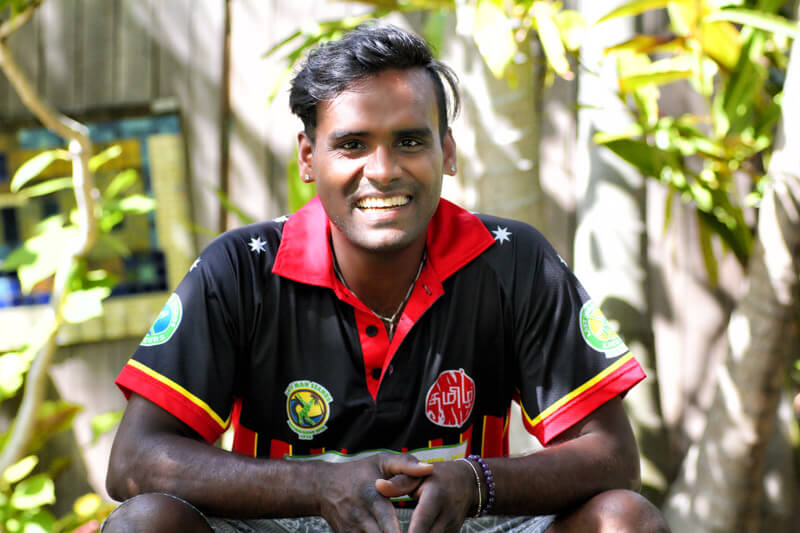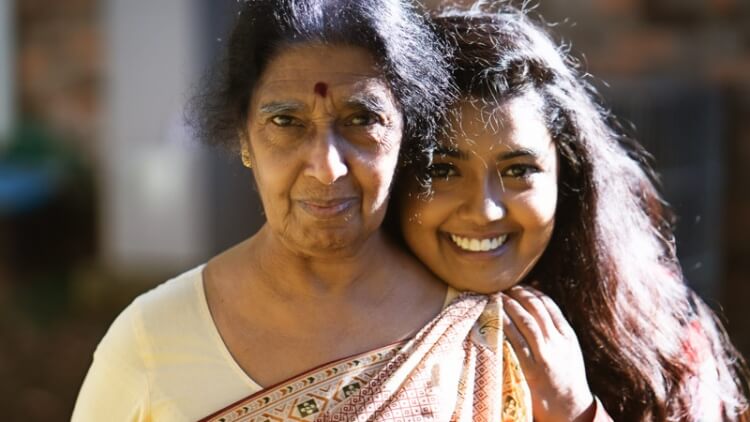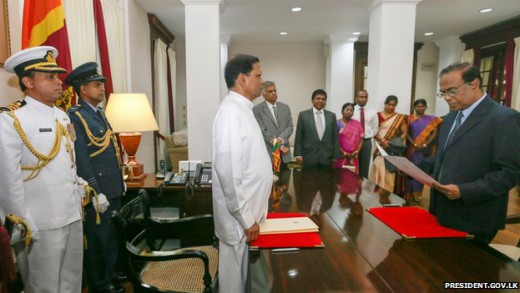In October 2009, my appa returned to Australia. He had survived the last five months of the civil war in northern Sri Lanka. More than 70,000 others had not. The war ended in May 2009, yet it had taken him five long and tense months to make it back to us.
Months later, people who were in the war zone would tell my family that they didn’t understand how appa had survived. They told us of how he would run into battle zones to pick up injured civilians, load them onto his rusty pickup truck, and drive them to makeshift hospitals under trees. Many would die on the way. Many would die when the “hospitals” were bombed by the army.
A story appa told me is of how during the displacement of the final months, women would hang up their sarees to create temporary spaces of fleeting privacy. Amongst all the death and destruction, their colours were hauntingly beautiful.
Nesa Arumguam, a dear friend, activist and writer, says of this scene:
“The image of the ingenious but inadequate “cover” for the moment to moment state of affairs of the Eelam Tamils is emphasized evocatively by sarees fluttering in the wind in makeshift rooms. That goes beyond the physical – it was an act of heroism born out of necessity, of innovation under the most trying of human disasters and their colours just speak of the beauty of that survival against all odds. Using an ancient garment to shield them from present pain. And when the wind lifts, those sarees bare the truth that is revealed.”
I imagine this scene often with an an awareness that I will never understand any of it.
A little while after he returned, appa started singing a very old Tamil song – nilave va (நிலாவே வா). After weeks of hearing him only sing this song, I asked him about it. He spoke very fondly of a couple he had met while displaced. The husband – who was a good singer – had sung நிலாவே வா for him one day during a brief and rare moment of respite.
The wife, a doctor, would spend her days at the makeshift hospitals that had long run out of medicine. One morning in the final days of the war, appa dropped the wife off at the hospital. Two hours later, the army had bombed the hospital and she was killed along with many others.
Seven years later, his memories of those last months have not made it onto the pages of the book he knows he needs to write. To write it would be to relive it all over again, even though the pain and sadness has never left him.
In the last year, I have been thinking a lot about the way devastating events in history are framed.

Speaking about the character Patsy in the movie “12 Years a Slave”, American feminist scholar Bell Hooks writes:
“What I want for us all the time is a pushing of the imagination… I’m tired of the naked, raped, beaten black woman body. I want to see an image of black femaleness that alters our universe in some way.”
Recently, appa’s Colombian psychologist said to me, “Your father is rewriting history through the Tamil solidarity work he is doing. The version of history that endures is often that of the victors, not of the defeated. Your father is telling the story of what happened from the Tamils’ point of view. This is important, even if people don’t realize it now.”
I mention that he is Colombian because his community continues to survive a terrifying, ongoing armed conflict in their homeland.
I took his and Bell’s advice seriously. My own narrative of the Eelam Tamil struggle started to shift.

As Tamils, each one of us in the diaspora and in our homeland has an individual story of survival. In our actions, memories, homes, parents, words, art, activism, ancestors, land and even sarees, there is a powerful story of our community’s collective survival.
As we mark the seven year end of the war in our homeland, as reports of white van abductions resurface, and as evidence of torture, including rape, continue to emerge, I want to ensure that at least a part of our history is written from our point of view with our own voice.
Sarees in the Wind: Tamil Survival Stories is my attempt to do this. In Bell’s words, I want it to alter our universe in some way.
Sarees in the Wind Tumblr page: sareesinthewind.tumblr.com
Twitter and Facebook: @TamilSurvivalStories
Photo credit: @BramiJegan











